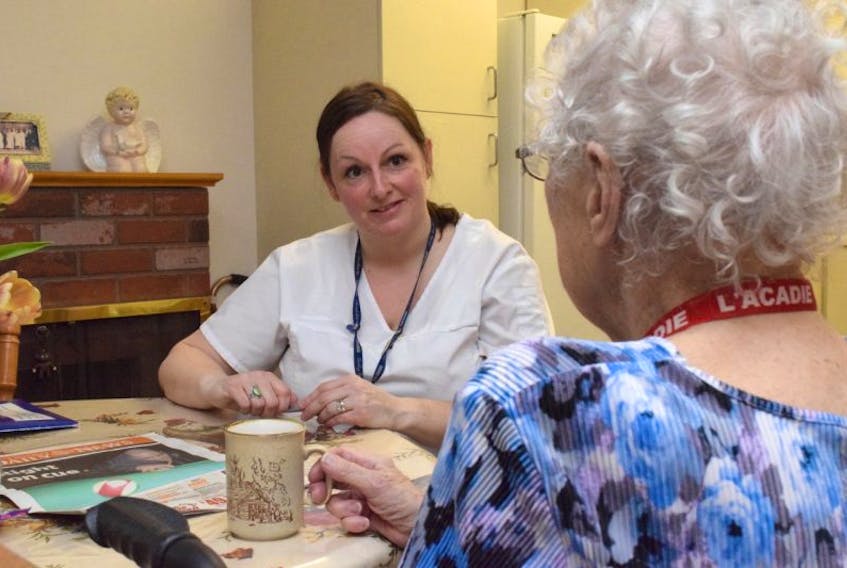Unions representing home care workers in P.E.I. are expressing concerns over what they say is a move towards privatizing P.E.I.'s health-care system.
Mona O'Shea, president of the P.E.I. Nurses Union which represents registered nurses (RNs) in the home care sector, said while there needs to be better access, there are also concerns over three new initiatives announced this week.
RELATED: Federal funds of $750K will support three new P.E.I. home care initiatives
ALSO RELATED: Planned cuts ensure that private businesses will focus on profits over proper care
The province has announced two rapid bridging programs and one seniors check-in program that will receive $750,000 in federal funds this year.
About $450,000 of that will go towards Island EMS and will see paramedics take on a greater role in home care.
“Those are federal dollars going into a private company… No matter how the government wants to spin it, it's privatization,” said O'Shea, who would have preferred to see the current system strengthened by hiring more nurses.
“If it's about enhancing the home care services we already have in place, why are we bringing in a third party to muddy the waters?”
Health Minister Robert Mitchell said Island EMS paramedics will be vital to the programs, which he said will enhance the current home care system by adding another layer.
He said in order to receive federal funding, the programs had to be considered a new innovation.
The initiatives will also see three nurses hired to co-ordinate the roles of advanced paramedics, as well as the addition of a nurse practitioner for home care.
Karen Jackson, president of UPSE which represents licensed practical nurses (LPNs) and resident care workers (RCWs), also has concerns.
“We would rather have seen the money invested into a system that’s already working well with the nurses and LPNs and RCWs… and enhance what we already have without giving it to a private company to enhance,” said Jackson.
“We have LPNs and RCWs who as home care workers aren’t working at their full scope of practice. So why not enhance it that way and use that as a new initiative?”
For example, Jackson said while LPNs and RCWs are trained to do blood pressure tests, they’re not permitted to while in a home care role.
Concerns were also bolstered by New Brunswick's decision last year to privatize its home care system. The contract was awarded to Medavie Health Services, which owns Island EMS.
“People should be aware that once you allow private companies in, there is less transparency and accountability,” said Jackson.
Both unions also raised concerns on a lack of consultation when creating the new initiatives, with O'Shea stating that discussions were held at a director level without meaningful input from front-line workers.
O'Shea said there are also concerns that bringing in private sector paramedics will impact communication and create confusion over home care roles.
“The continuity of care is going to go right out the window,” said O'Shea. “I do want to make it clear that EMS (paramedics) do have the skills and the knowledge to do what they need to do, but they do not have the in-depth detail an RN has.
Just because you put more people in the system, doesn't mean they’re going to have better outcomes.”









